The term "liposomal" is becoming increasingly popular in nutritional supplements.
But what exactly does it mean, and why should you care about liposomal supplements? This comprehensive guide will break down the science behind liposomal technology, explain its benefits, and help you make informed decisions about incorporating these advanced supplements into your wellness routine.
What is Liposomal Delivery?
Liposomal means that vitamins or other nutrients are wrapped in tiny bubbles called liposomes. These bubbles are made from the same kind of fats that make up the outer layer of your cells.
These special fats are called phospholipids. One end of these fats mixes with water, while the other end doesn't – just like how dish soap works. This lets them form protective bubbles around vitamins that normally dissolve in water.
The word "liposomal" comes from "lipo" (which means fat) and "soma" (which means body). This name fits perfectly because these are fat-based carriers. Liposomes are super small – so tiny you can't see them with your eyes alone. Even though they're tiny, they help nutrients get into your body better.
How liposomes work in the body
When you consume a liposomal supplement, the liposomes protect their nutrient cargo through the harsh environment of your digestive system.
Traditional supplements often lose significant potency during digestion, with stomach acids and enzymes breaking down nutrients before they can be absorbed.
Liposomes work differently. Their phospholipid bilayer structure closely resembles your cell membranes, allowing them to:
-
Shield the encapsulated nutrients from digestive degradation
-
Transport intact nutrients through the digestive tract
-
Facilitate efficient absorption directly into the bloodstream
-
Merge with cell membranes to deliver nutrients directly into cells
This process is sometimes called "enhanced intracellular delivery" because liposomes can help nutrients reach their destination—your cells—more effectively than conventional supplements.
Why liposomal technology is used in supplements
Liposomal technology was first developed for pharmaceutical applications, where it revolutionized drug delivery.
Its success in medicine naturally led to applications in the nutrition and supplement industry, addressing a fundamental problem: many valuable nutrients have poor bioavailability.
Bioavailability refers to the proportion of a nutrient that enters circulation and becomes available for your body to use.
Many traditional supplements have disappointingly low bioavailability due to:
-
Degradation by stomach acid and digestive enzymes
-
Poor absorption in the intestinal tract
-
Metabolism in the liver before reaching target tissues
-
Limited ability to cross cell membranes
Liposomal technology helps overcome these obstacles, making it particularly valuable for nutrients that are notoriously difficult to absorb, such as certain vitamins, antioxidants, and herbal compounds.
Benefits of Liposomal Supplements
Now that we understand what liposomal technology is, let's explore the specific advantages it offers compared to traditional supplement forms.
Improved absorption and bioavailability
The most significant advantage of liposomal supplements is their dramatically improved bioavailability.
Research suggests that liposomal vitamin C, for example, may have 5-10 times higher bioavailability than standard oral vitamin C supplements.
This enhanced absorption means:
-
You can take lower doses while achieving similar or better results
-
Your body receives more of the active ingredient
-
You get more value from your supplement investment
For nutrients with naturally low bioavailability, such as glutathione or curcumin, the liposomal delivery system can make the difference between a supplement that works and one that simply passes through your system.
Targeted nutrient delivery
Beyond simply improving overall absorption rates, liposomal technology offers another significant advantage worth exploring:
Liposomes don't just improve overall absorption—they can help deliver nutrients to specific cells and tissues. The phospholipid structure of liposomes allows them to:
-
Pass through the blood-brain barrier more effectively than some conventional supplements
-
Target delivery to specific cell types
-
Release nutrients gradually for sustained effects
-
Protect sensitive compounds from oxidation and degradation
This targeted delivery is particularly beneficial for compounds that need to reach specific organs or tissues to exert their benefits.
Enhanced effectiveness
The combination of improved bioavailability and targeted delivery results in supplements that simply work better. Users of liposomal supplements often report:
-
Faster onset of benefits
-
More noticeable effects at lower doses
-
Reduced digestive discomfort compared to high-dose traditional supplements
-
Better results compared to conventional supplements
Liposomal vs Regular Supplements
Let's examine the differences and similarities between liposomal vs regular supplements:
Differences and similarities
While both liposomal and regular supplements aim to deliver nutrients to your body, they differ in several key ways:
|
Feature |
Liposomal Supplements |
Regular Supplements |
|
Delivery system |
Phospholipid encapsulation |
Tablets, capsules, powders |
|
Bioavailability |
Generally higher |
Generally lower |
|
Nutrient protection |
Protected from digestive enzymes |
Exposed to digestive breakdown |
|
Cost |
Usually more expensive |
Usually less expensive |
|
Taste/texture |
May have distinct taste or texture |
Familiar formats |
|
Dosage needed |
Often lower effective dose |
Often higher dose required |
Both types of supplements contain the same nutrients—it's the delivery system and absorption that differentiate them.
Are liposomal supplements worth it?
The higher price point of liposomal supplements naturally raises the question: are they worth the investment? The answer depends on several factors:
-
Your absorption capacity: Individuals with digestive issues, older adults, or those with certain health conditions may benefit more from liposomal delivery.
-
The specific nutrient: Some nutrients have naturally poor bioavailability and benefit significantly from liposomal delivery.
-
Your health goals: For therapeutic or targeted health concerns, the enhanced delivery may justify the higher cost.
-
Your budget: The best supplement is one you can consistently afford.
When calculating the true value, remember that a lower-dose liposomal product that's well-absorbed may provide better results than a higher-dose traditional supplement with poor absorption.
Who might benefit most from liposomal forms
While value is an important consideration, it's also helpful to understand which specific groups might see the greatest benefits from choosing liposomal delivery:
While anyone can use liposomal supplements, certain groups may find them particularly beneficial:
-
Older adults: Natural decreases in digestive efficiency make enhanced delivery more valuable
-
People with digestive disorders: Conditions affecting nutrient absorption (IBS, Crohn's, celiac disease)
-
Those seeking therapeutic effects: When optimal absorption is crucial for health outcomes
-
Individuals with specific genetic variations: Some people naturally have lower absorption capacity for certain nutrients
-
Those experiencing sensitivities to high-dose supplements: Liposomal delivery may reduce digestive discomfort
For these groups, the improved bioavailability of liposomal supplements may provide benefits that justify the premium price.
Common Nutrients Found in Liposomal Form
Now that we understand who might benefit from liposomal supplements and why, let's explore the most common nutrients available in this advanced delivery form.
Liposomal vitamin C
Vitamin C (ascorbic acid) is perhaps the most popular liposomal supplement, and for good reason.
Traditional oral vitamin C has limited absorption, with bioavailability decreasing significantly at higher doses. Liposomal vitamin C bypasses these limitations.
Benefits of liposomal vitamin C include:
-
Enhanced immune support
-
Better antioxidant protection
-
Improved collagen synthesis
-
Reduced intestinal discomfort compared to high-dose traditional vitamin C
Many users report that liposomal vitamin C provides faster and more noticeable immune support than traditional forms.
Liposomal D3K2
Vitamin D3 and vitamin K2 work synergistically to support bone health, cardiovascular function, and immune regulation. As fat-soluble vitamins, they benefit particularly from liposomal delivery, which helps them:
-
Absorb more efficiently
-
Bypass the need for dietary fat for absorption
-
Work together in optimal ratios
-
Reach target tissues more effectively
The liposomal form of D3K2 is especially valuable for those with fat malabsorption issues or those seeking optimal levels of these crucial vitamins.
Liposomal glutathione and other antioxidants
Perhaps where liposomal technology truly shines is in the delivery of compounds that are notoriously difficult to absorb in traditional supplement form:
Glutathione, often called the "master antioxidant," presents significant absorption challenges in traditional supplement form. The digestive system tends to break it down before absorption. Liposomal glutathione solves this problem, delivering this powerful antioxidant intact.
Other antioxidants commonly found in liposomal form include:
-
Curcumin (from turmeric)
-
Astaxanthin
These potent compounds all benefit from the protection and enhanced delivery that liposomes provide.
How to Choose a High-Quality Liposomal Supplement
Here's how to identify truly effective liposomal products:
What to look for on labels
Not all products labeled "liposomal" are created equal. To ensure you're getting a true liposomal supplement:
-
Check the ingredients list: Look for phospholipids (phosphatidylcholine is common) and avoid products with excessive fillers or additives.
-
Verify the manufacturing method: True liposomal products use specialized equipment and processes.
-
Particle size information: Quality manufacturers often provide information about their liposome size.
-
Transparent nutrient content: Clear labeling of the active ingredient amount.
-
Non-GMO phospholipids: Ideally from sunflower lecithin rather than soy.
Be wary of products that claim to be "liposomal" but don't contain phospholipids or use the term loosely as a marketing device.
Storage and shelf-life considerations
Beyond the initial quality indicators on the label, proper handling is crucial for maintaining the integrity of these sophisticated supplements:
Liposomal supplements require proper storage to maintain their integrity:
-
Most require refrigeration after opening
-
Keep away from direct sunlight and heat
-
Follow expiration dates carefully
-
Watch for separation or color changes
-
Some come in dark glass bottles to protect from light
Generally, liposomal supplements have shorter shelf lives than traditional supplements, reflecting their more delicate structure and minimal use of preservatives.
Third-party testing and brand transparency
Finally, when investing in premium liposomal supplements, verification of quality becomes particularly important:
Given the technical nature of liposomal production, third-party verification is particularly valuable:
-
Look for products tested by independent laboratories
-
Seek brands that provide certificates of analysis
-
Research the company's manufacturing standards
-
Consider brands that invest in research
Rho Nutrition has rigorous quality control standards and transparent manufacturing practices for its liposomal supplements.
Bottom Line
Liposomal supplements are a newer and better way to take vitamins and nutrients. They use special fat bubbles to help more of the good stuff get into your body where it's needed. If regular supplements haven't worked well for you, liposomal options might be worth trying.
Remember to talk to your doctor before starting any new supplements. They can help you figure out which ones are right for your specific health needs.
Ready to try better vitamin absorption? Check out Rho Nutrition today!
Disclaimer: These statements have not been evaluated by the Food and Drug Administration. This product is not intended to diagnose, treat, cure or prevent any disease. The views and nutritional advice expressed by Rho Nutrition are not intended for the purpose of providing medical advice. Please always consult your healthcare provider if you are taking any medications or have any medical conditions. Individual results may vary.
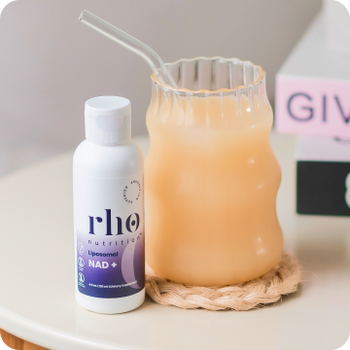
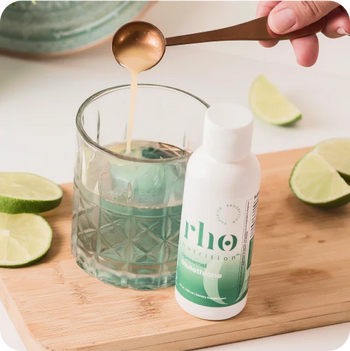
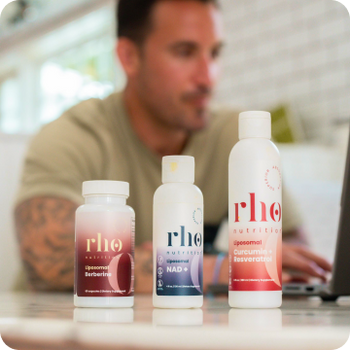
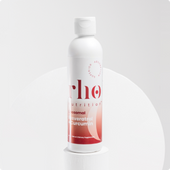
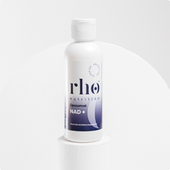

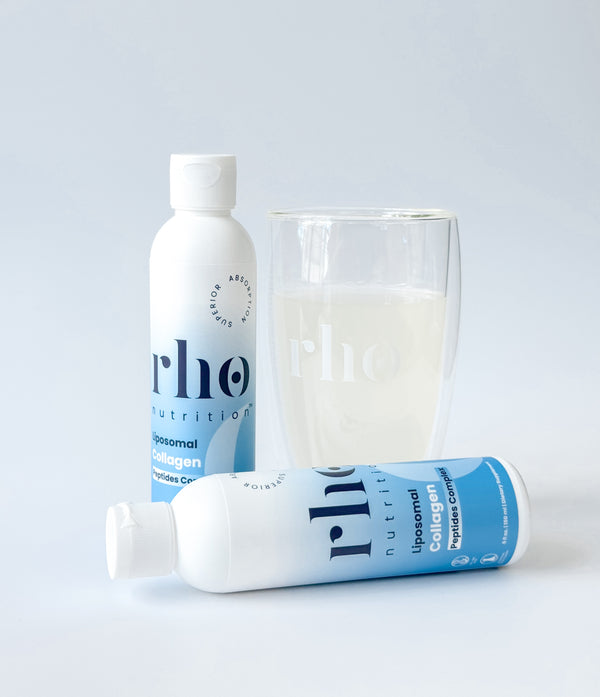
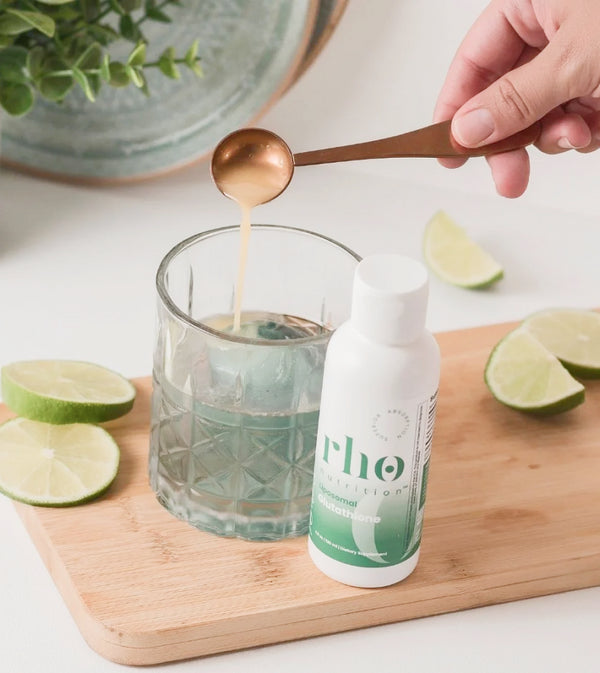
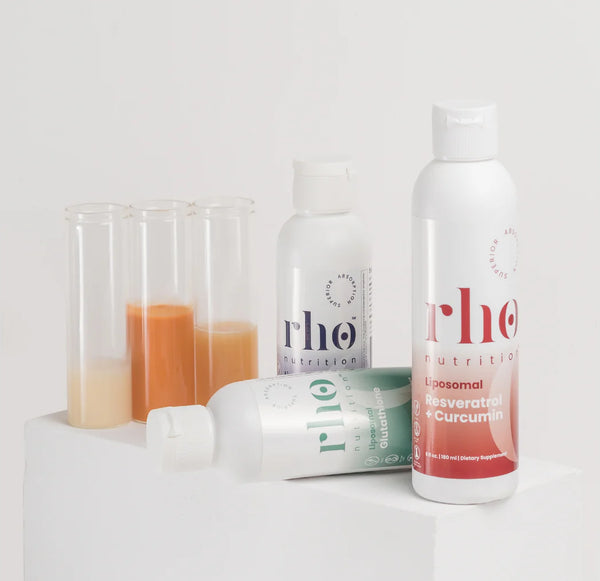
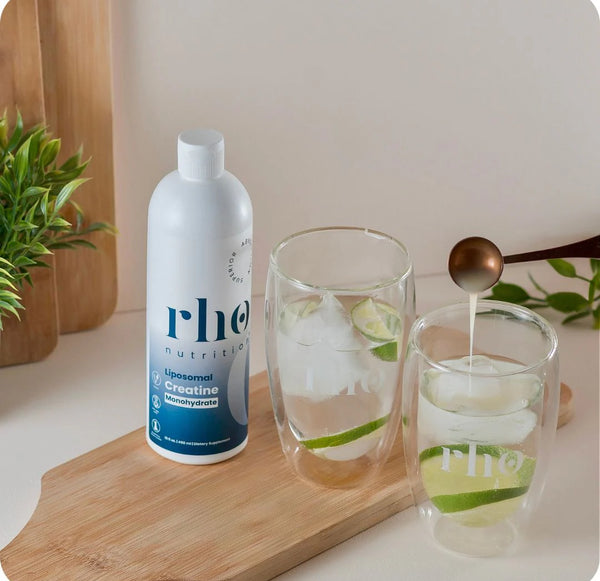



Leave a comment